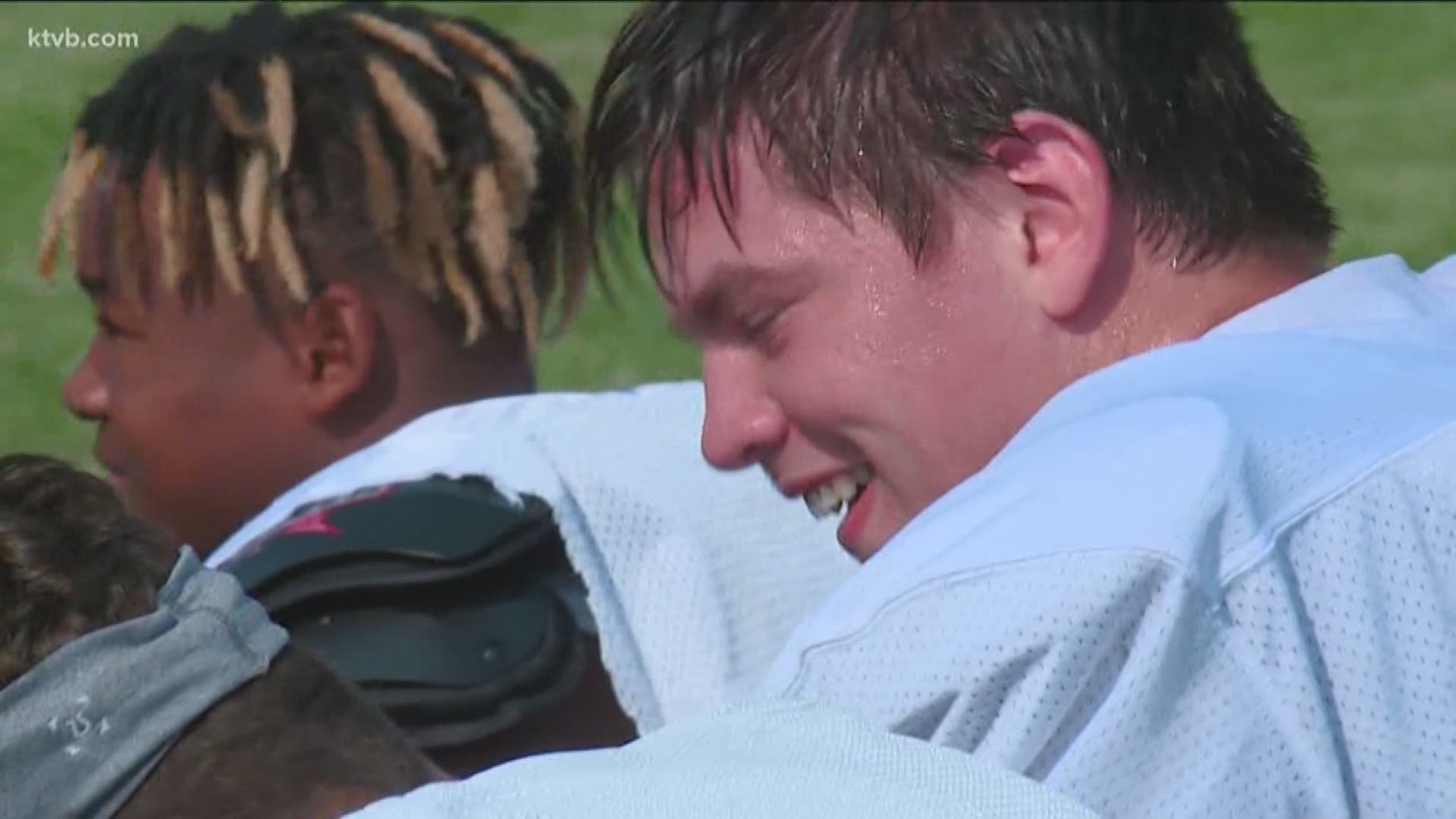TREASURE VALLEY — When football season kicks off in the Treasure Valley, rarely is Mother Nature ever nurturing or accommodating to local teams.
Whether it be the air quality, heat, or concussion awareness, player safety is always at the forefront of the discussion for West Ada School District Activates Director Jason Warr.
"In today's day and age, we need to be aware of certain things," Warr says. "Every morning we're getting up and looking at the heat index [this time of year]. We want to be proactive."
So as temperatures continue to surge passed triple-digits in Boise, Meridian, and the surrounding area, it is easy to understand why Warr's scene of concern is now heightened.
"Young brains handle heat differently than adults. Many times a young athlete working out in the head doesn't realize until it's too late that they are dehydrated," explained Warr. "Once a young athlete begins the dehydration process, getting them back to normal levels can take 48 to 72 hours."
While proper hydration before, during and after practice is key, Warr says there are a number of other factors that they study and regulate as well.
"It's just an awareness of what the best practices are. So, practice time and where we practice at," are two variables that Warr says the school district monitors.
"The day and age of, 'hey you don't need water or you can run through a wall and don't worry about it,' those days are over," he continued.
For High School coaches like Mountain View's Judd Benedict, the recommendations offered by the school district are as important to their approach as any play or player.
"We're always talking to our kids about hydration," says Benedict, "but it gets really important when it heats up.
In addition to that, Benedict - who enters his 12th season as the head coach at Mountain View - also focuses his practice plan to minimize the amount of time his players spent in the extra heat.
"I've always kind of liked the phrase work smarter not harder," he explained. "We're still going to condition and the kids have to get used to wearing their pads because they're going to play in the heat. But going harder and being more physical and pressing when you don't need to isn't necessarily beneficial."
That's why on Thursday, the Mavericks moved their second practice session of the day up almost more four hours to one o'clock in the afternoon.
"For us, we're kind of bumping things up," explained Benedict, "and trying to finish before it gets really hot."
Over at Boise State, the Bronco football team is having to handle the heat as well.
"I felt like my feet were melting," joked Curtis Weaver.
"When it comes to the heat, we address it, but we don't dwell on it," says Boise State head athletic trainer Marc Paul. "We really press the nutrition and the hydration with [our players] around the clock."
Paul, who has been at Boise State for 10 years now, says that his team of trainers track weather forecast daily, and then offer the information they deem necessary to coaches like Bryan Harsin.
"We pay attention to heat index charts and we're very aware of what we're practicing in," explained Paul. "Talking with coach Harsin, they're scheduling in extra breaks and longer times between periods so we can push fluids during those practices."
But that's not all they do. According to Paul, Boise State players have mandatory weigh-ins before and after each and every practice.
"It can be anywhere from 3-to-5 pounds," explained sophomore STUD Curtis Weaver when asked how much his weight will fluctuate due to a warm practice. “But drinking water and eating right gets you back to your right weight."
"It's just part of the nutrition plan," added sophomore quarterback Chase Cord, addressing the importance of re-gain the weight lost during practice.
The weigh-in, weigh-out model is something that Paul and his team of trainers have followed for years, and according to him, it's a system that is working.
"There's a lot of things that not just while they're on the field," said Paul. "Our players and coaches have done such a good job at addressing hydration before we come outside or before it gets hot that over the years we've really noticed how well our players can handle this type of climate."

